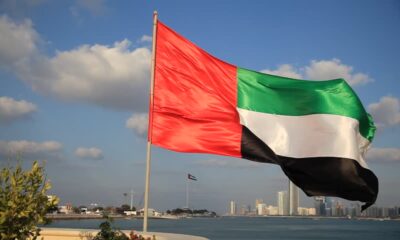Featured
The un-Islamic Islam of the Saudi ruling Family
Published
3 years agoon
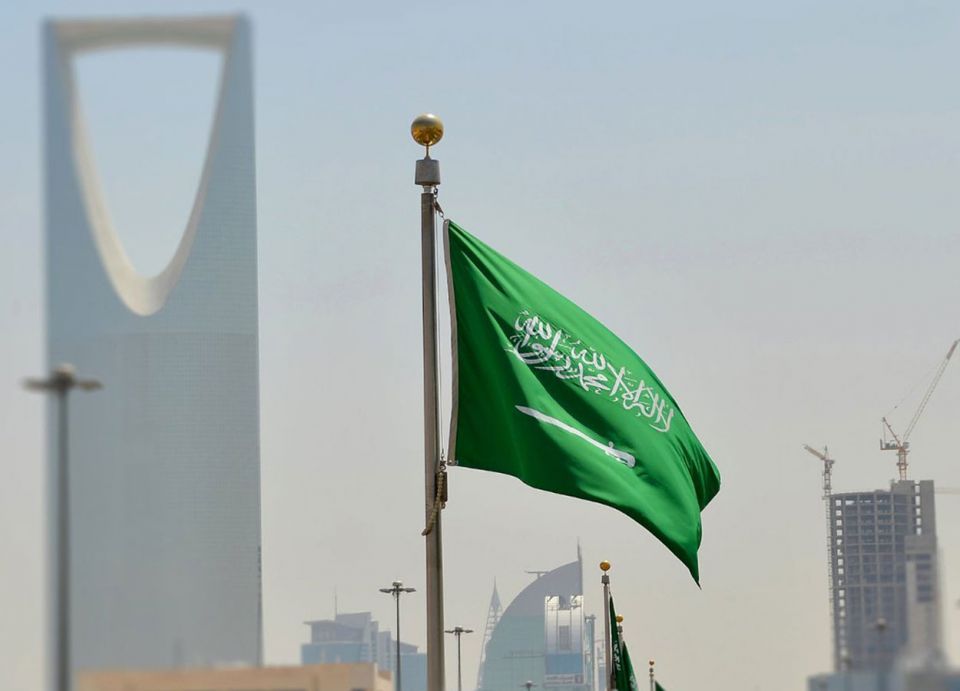
Most people in the non-Muslim world as well as many ordinary Muslims all over the world may be tempted to think that the kingdom of Saudi Arabia and Saudi ruling family more or less represents the true face of Islam as preached by the Prophet Muhammed (PBUH) and later taught and propagated by his faithful companions and followers. However, the truth of the matter is that there is a light year-gap between the Saudi “Islam” and the true Islam, as enshrined in the Holy Quran and Sunna or traditions of God’s final messenger to mankind.
By “Saudi Islam” I don’t mean in any way the honourable Hanbali school of Jurisprudence followed by most Saudis and numerous other Muslims around the world. What I do mean is the scandalous misuse and abuse of Islam by the decadent and unimaginably corrupt Saudi ruling family to perpetuate their virulent dictatorship and grip on power, mainly in the service of their parochial selfish interests and the interests of their foreign protectors, who are enemies of Islam.
Serious deviation from Islam

In this article, I will try to pinpoint some of the most scandalous contradictions between true Islam and the notoriously “sham Islam”, practised by the tribal Saudi dictatorship which claims rather shamelessly that its “legitimacy” is derived from its strict adherence to Sharia, a claim fraught with dishonesty and mendacity.
I don’t deny that the Saudi regime’s rule of the vast Arabian peninsula has always contained and continues to contain some superficial aspects of Islam such as the organization of the annual Haj pilgrimage to Macca and the maintenance of the holy places. However, if we examine the nature of the Saudi rule more meticulously, without resorting to complacency and sycophancy, we will be undoubtedly affronted with grave violations that are absolutely antithetical to the letter and spirit of Islam.
Medieval feudal dictatorship
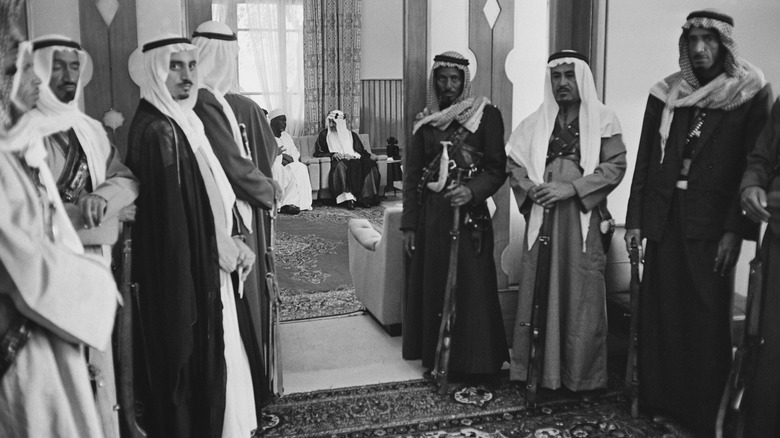
To begin with, the ruling Saudi dynasty is a medieval kind of tyrannical dictatorships whereby the unelected king is viewed, de facto at least, as a sort of god, with absolute and unlimited authority. Thus the King, can, theoretically at least, kill any citizen, rape any woman, and arrogate any amount of money from the public treasury with total impunity and without any modicum of accountability. Needless to say, any gesture of dissatisfaction by the people, however faint or innocuous, is punishable by death or life imprisonment.
This contradicts rather sharply the clear principles of Islam which make it amply clear that a religous Muslim ruler must be chosen by the people, either directly or through their elected representatives, namely “Ahlul Hall wal’aqd“(literally, people who tie and untie). Moreover, Islam states unequivocally that obedience to the ruler is contingent upon and subject to his absolute dedication and commitment to the Sharia.
Kleptocracy: A government of thieves, run by thieves, for the benefit of thieves
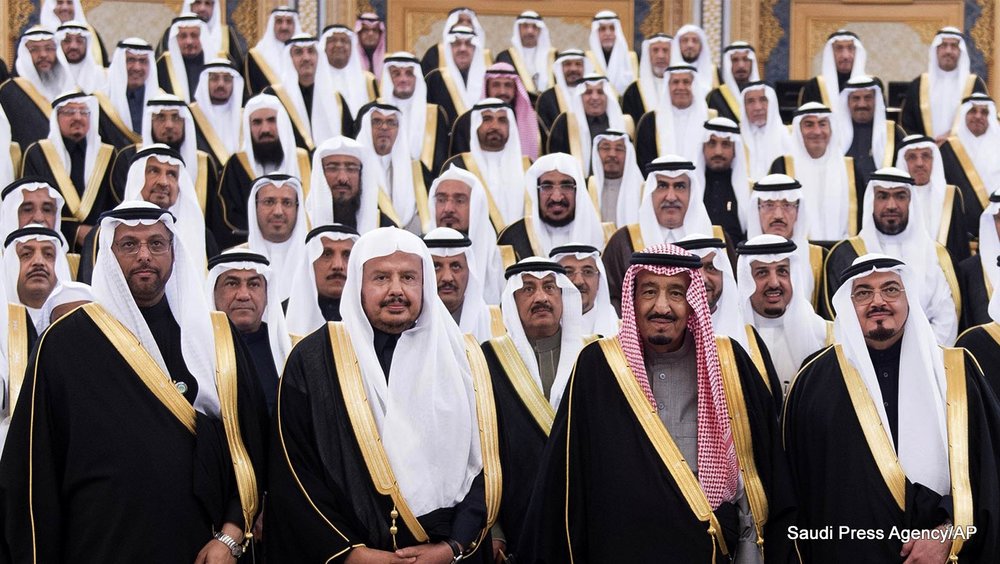
As we all know, the Prophet of Islam (PBUH) said “By Allah, if Fatema, the daughter of Muhammed, stole, I would cut off her hand.”
However, we see that the Saudi rulers view the wealth of the entire country as their own wealth. Hence, it is no coincidence that all Saudi kings since King Faisal, who was assassinated by his nephew in 1975 arrogated tens of billions of dollars from the public treasury. This explains the fact that Saudi kings, Princess and hundreds of other members of the ruling family devour a large chunk of the Saudi treasury.
In 1988, Fortune Magazine estimated former King Fahd’s wealth to be around $18 billion (making him the second-richest person in the world at that time). Forbes estimated Fahd’s wealth to be $25 billion in 2002. In addition to residences in Saudi Arabia, he had a palace on Spain’s Costa del Sol which made Marbella a famous place. Current estimates of Crown Prince Muhammed Ibn Salman’s wealth are put at $23 billion. All in all, estimates of the Saudi ruling family’s wealth measure their net worth at $1.4 trillion. This figure includes the market capitalization of Saudi Aramco, the state oil and gas company, and its vast assets in fossil fuel reserves. In light, one can quite safely argue, without the slightest exaggeration, that the Saudi regime is actually a government of thieves, run by thieves, for the benefit of thieves.
Hence the question, what sort of Islam are these master hypocrites and liars talking about when they claim they are ruling the country in accordance with the Book of Allah and the Sunnah of His Prophet? Their malicious, pernicious lies are crying to the seventh heaven.!
The truth of the matter is that these depraved thieves are only using Islam as a pretext to hide their rapacity, corruption and criminality.
Indeed, One doesn’t go too far by arguing that the Saudi dynasty and Saudi ruling family is an incurable malignant cancer upon the conscience of Islam and Muslims as they constitute the ultimate antithesis of the religion of justice. This is because they knowingly commit grand treachery against Allah, His messenger and the religion of Islam while claiming that they rule according to Sharia! Islam is not an enigmatic religion. It is the Saudi ruling family that is corrupt beyond imagination.
Jamal Khashogji
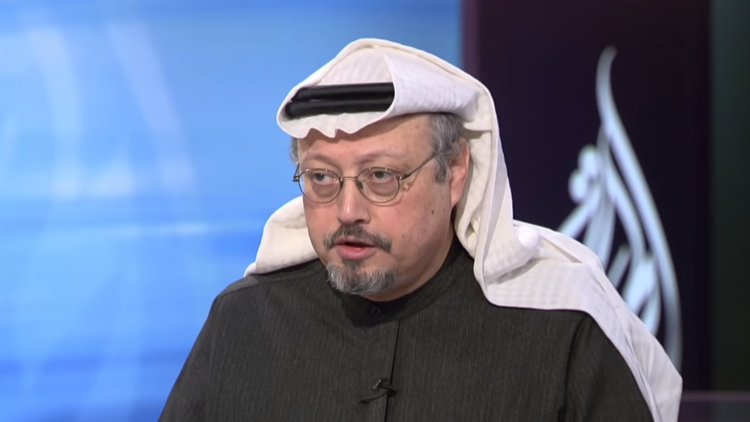
The hair-raising murder of Jamal Khashogji at the Saudi Consulate in Istanbul in 2018 epitomizes the un-Islamic Islam of the feudal Saudi regime. And as we all know, the murderous crown Prince and de facto king (MBS), who ordered the grisly murder, has eventually emerged unscathed from that eternal stigma.
Open-ended incarceration for God-fearing Ulema and rights activists
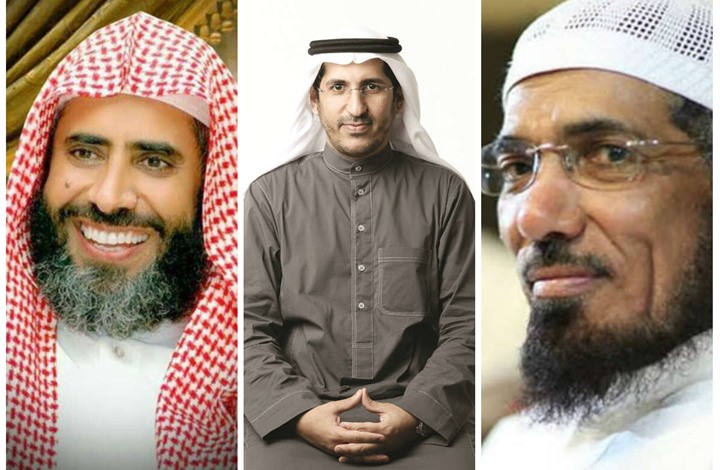
Today, MBS is incarcerating in shocking conditions thousands of Saudi intellectuals, Ulema, and activists for voicing non-conformist views. Some of them have died in their cells. Others are agonizing as a result of physical and psychological torture.
The draconian justice system in the Kingdom of fear and darkness sentenced two Saudi women for 35 and 45 years respectively for using the social media. This week, it was reported that a Saudi court sentenced Noura bint Said al-Kahtani to 45 years in prison for social media posts. The woman was convicted of “using the internet to tear the (Saudi) social fabric” and for “violating public order by using social media.” A few weeks earlier, the same court sentenced Salma al-Shehab, a mother of two and doctoral candidate at the University of Leeds in Britain, to 35 years in jail for following and retweeting dissidents and activists on Twitter.
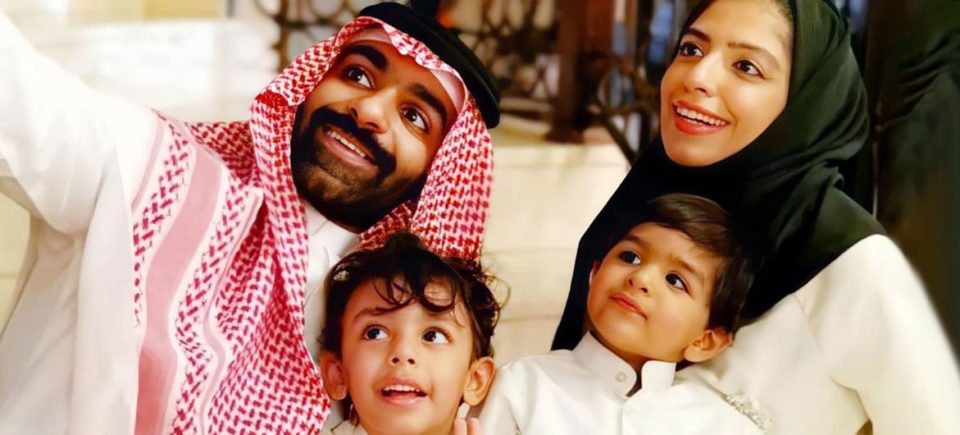
Yes, a 45-year imprisonment sentence for writing a simple tweet! What sort of Islam is that? Would the Prophet of Islam and his companions have condoned this outrageous absurdity and preposterousness?
Eternal subservience to America
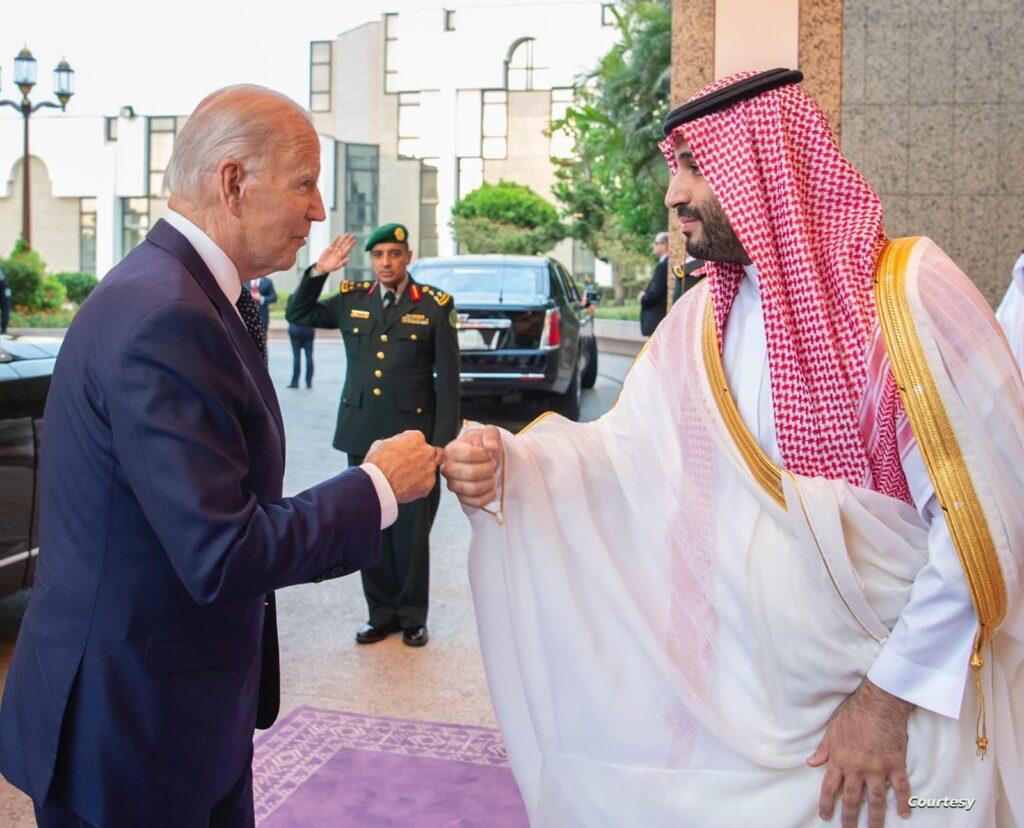
Ever since Britain withdrew from the region in the early 1960s, Saudi Arabia has been a de facto American protectorate. The unholy bond goes like this: The U.S, sustains the Saudi dynasty in power in exchange for Saudi Arabia serving and doggedly guarding American and Israeli interests in the entire Middle East.
In the last two decades, Saudi Arabia spent tens of billions of dollars to prop up dictatorial rulers in the region. It is widely believed that the Saudi monarchy paid more than 20 billion dollars to overthrow the first democratically-elected President of Egypt, Muhammed Mursi, in 2013. The advent of the visibly ignorant Egyptian dictator, Abdul Fattah Sissi, who is Israel’s No.1 lover in the Arab world, was preceded by huge massacres of pro-democracy activists, at the Rabaa and Nahda squares in Cairo where between 7000 -10,000 men, women and children were either slaughtered en mass by machinegun fire or incinerated alive by Egyptian forces.
Read also: Is America Embracing Dictatorship In The Arab World?
Needless to say, The Saudis funded these hideous crimes and the concomitant bloody coup, which put a tragic end to Egypt’s brief democratic experiment. The King of Saudi Arabia, Abdullah, congratulated Sissi for his great victory over “the apostates.” Soon after these events, the Saudi government issued a plethora of laws and decrees criminalizing any individual calling for democracy, human rights and civil liberties in Saudi Arabia. Thus, anyone convicted of indulging in these “crimes” would be guilty of apostasy,” a grand felony punishable by death.! Yes, this is the Islam of Saudi Arabia. Does it look like the rule of Umar Ibn al Khattab and Abu Bakr and Ali ibn Abi Talib, let alone the rule of the Almighty’s final messenger to mankind?
Moral decadence
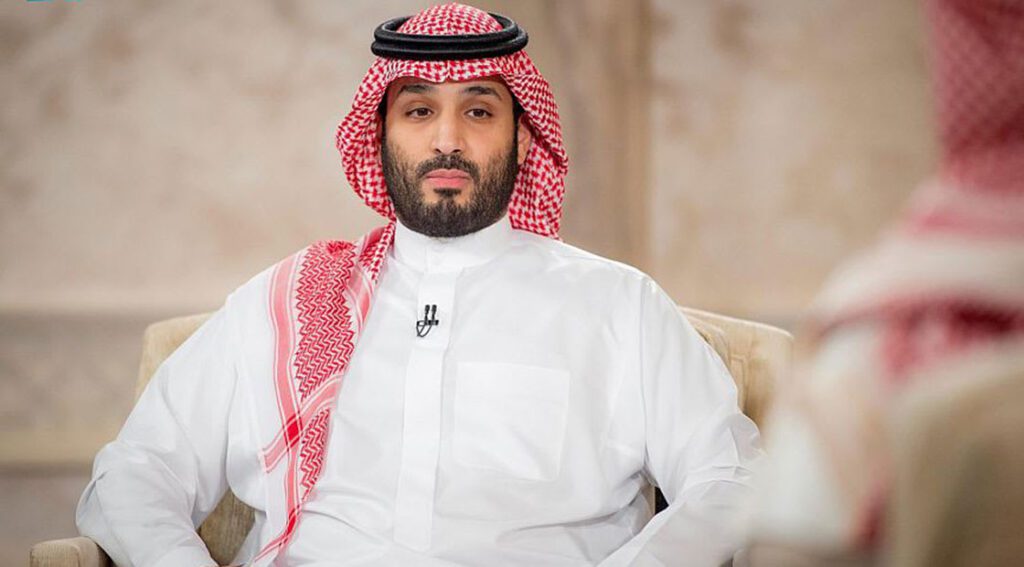
MBS is reportedly suffering from a host of personality defects including a clear mental disability which he often seeks to conceal by displaying exaggerated aggressiveness and intimidation. This is the reason why he always insists on receiving written questions by journalists and TV interviewers especially when visiting foreign countries.
He is also a lecherous hedonist par excellance. He is said to have arranged a promiscuous orgy in the Maldives in 2015 to celebrate his appointment by his father as Crown Prince. He reportedly paid 50 million US dollars for the party which was “attended” by 150 “women models” from several Western countries. A recently released book claimed that MBS arrived at the resort only after the models were tested and found safe from sexually transmitted diseases. The book, titled ‘Blood and Oil’ written by Bradley Hope and Justin Scheck, exposes MBS’s scandalous lifestyle and ruthless quest for power. Predictably, the Saudi media wouldn’t report on this and similar scandals for obvious reasons.
Allah will not be deceived
As we all know, such filthy promiscuity, obscene extravagance and wanton squandering of the Muslim Umma resources are absolutely Haram (strictly prohibited) according to the Book of Allah and the Sunna of our beloved prophet. However, these cardinal vices are obviously Halal and perfectly acceptable according to the pseudo-Islam of the Saudi ruling family. But Allah will not be deceived and His punishment will be very sever, indeed.
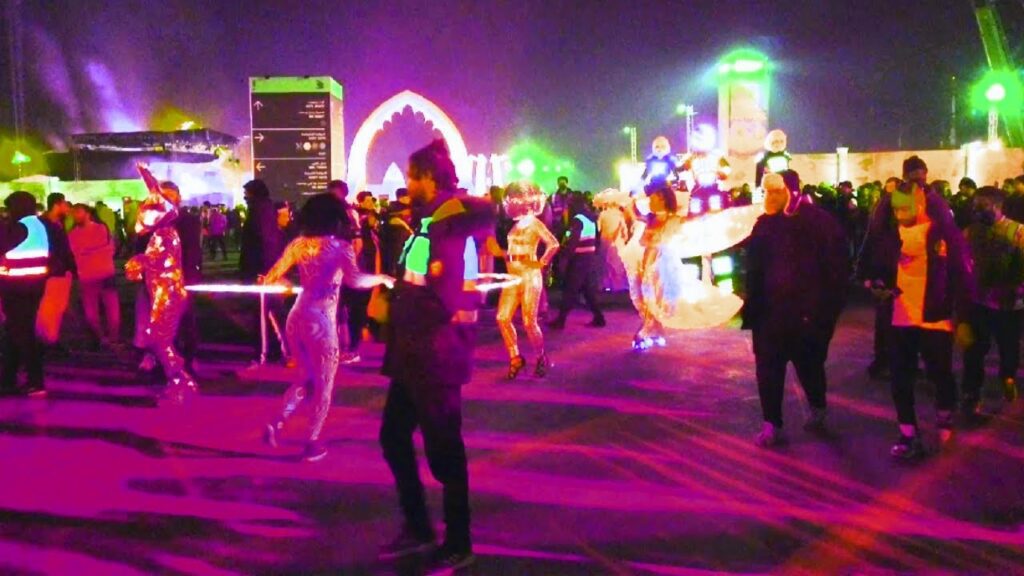
Today, MBS is busy carrying out an aggressive campaign of de-Islamization in Saudi Arabia This campaign has permitted Saudi women to dress more or less like western women, effectively abandoning the Hijab, though gradually. The campaign also allowed inter-gender mixing with a clear prurient underpinning as well as a plethora of sex-oriented “recreational activities” which fly in the face of Sharia rules of modesty. One Saudi intellectual residing abroad intimated to this writer that “it is only a matter of time before MBS allows prostitution houses and bars serving hard liquor to operate openly in the kingdom, especially in the Red Sea resort town of Jeddah, not far from the Kaaba, the holiest Muslim place on earth.
Reacting to this combination of brutal dictatorship, rampant corruption and falsified Islam, some Saudi youngsters are leaving Islam altogether embracing other religions. Others have opted to embrace atheism. It is not exactly known how widespread is the phenomenon. However, unofficial estimates put the number of atheists in the kingdom at tens of thousands.
The sinful Love relationship with Israel
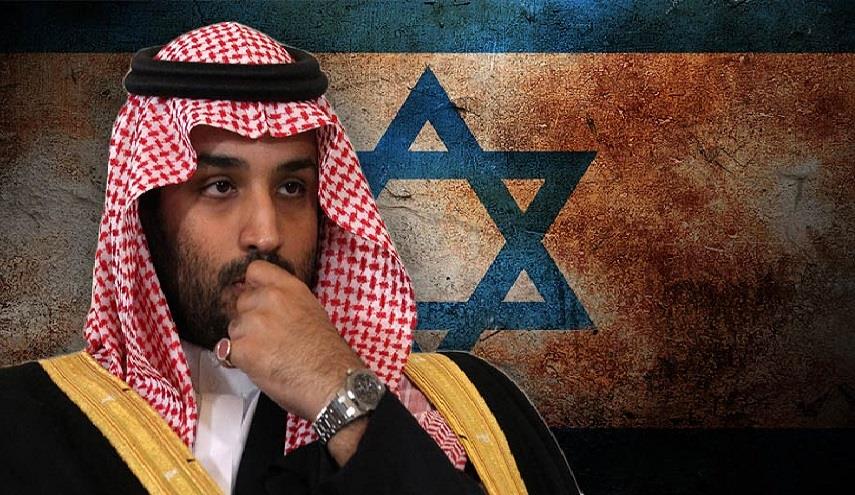
Saudi Arabia has displayed definitive signs indicating that the Kingdome is about to start a cordial relationship with the bellicose Zionist entity of Israel which is continuing to murder and savage fellow Palestinian Muslims in the West Bank and Gaza Strip on a daily basis. Signs of this sinful relationship included allowing Israeli passenger aircraft to fly over the kingdom, instructing social media bloggers as well as Friday Jumaa speakers and media in general to malign Palestinians and their enduring cause.
Read also:Biden effort to rehabilitate US-Saudi relations likely to include normalization with Israel
Officially, Saudi spokesmen claim the Kingdom’s traditional stance vis-à-vis the Palestinian issue has remained unchanged. However, the growing behind-the scene normalization between the kingdom and the evil apartheid Jewish entity suggests that the Saudis are effectively turning their backs on the Palestinian cause.
Needless to say, this treasonous abandonment of the Muslims’ No.1 cause shows that Saudi Arabia is not only betraying the Palestinians and the Aqsa sanctuary but is actually betraying the very soul of Islam itself. The Holy Quran warns Muslims repeatedly against taking hostile and belligerent enemies as allies. “Whoever embraces them amongst you is one of them, “the Quran warns.
Indeed, the looming alliance between Riyadh and Tel Aviv, should be viewed as a sign of apostasy, which ejects that horrible, primitive regime from the realm of Islam.
You may like
Featured
Who Will Guard Gaza’s Future? Inside the International Stabilization Force and the Peace Summit
Published
2 days agoon
November 3, 2025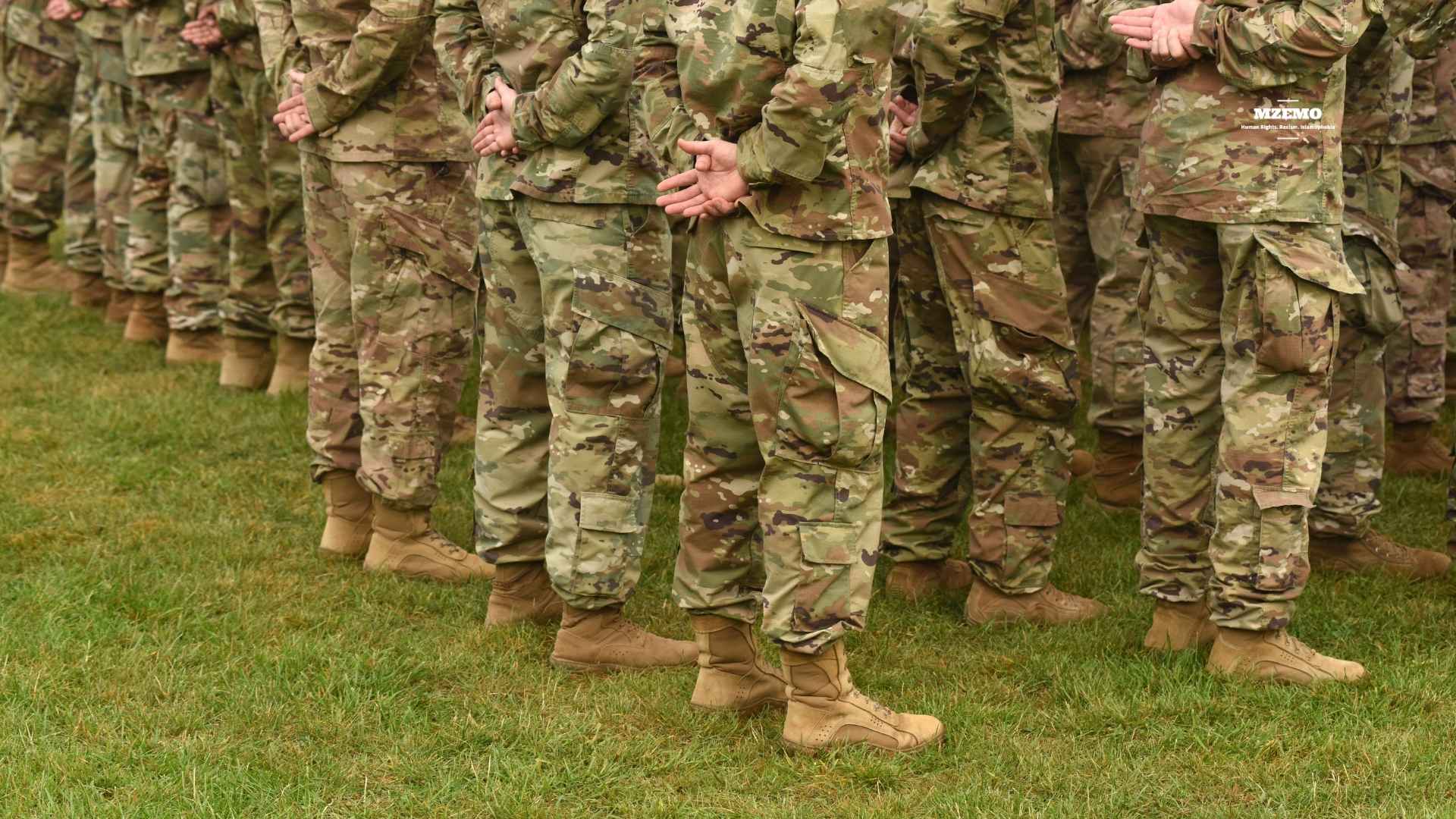
As the world turns its gaze toward the upcoming Gaza peace moot scheduled in Sharm el-Sheikh, anticipation mixes with skepticism. Delegations from more than 25 nations, including Egypt, Qatar, Indonesia, Pakistan, and the United States, are expected to participate. The summit’s stated goal is to chart a post-war roadmap for Gaza: one that ensures reconstruction, stability, and long-term governance. Yet, beneath the diplomatic smiles lies a deeper unease. Will this summit bring justice, or simply repackage occupation in the language of peace?
While Egypt positions itself as a mediator and the United States attempts to portray itself as a peace broker, many in the Muslim world view this as an exercise in image management. For Gazans who have endured months of devastation, the word “peace” feels hollow when their children are still being buried beneath rubble.
The International Stabilization Force: A New Guardian or Another Overseer?
Central to the summit’s agenda is the proposed International Stabilization Force (ISF). It is a multinational security body meant to take charge of Gaza once Israeli troops withdraw. According to policy outlines discussed at the Council on Foreign Relations, the ISF would be composed of troops from Muslim-majority countries such as Egypt, Indonesia, and Turkey, supported logistically by the U.S. and possibly NATO allies.
Its mission is to oversee security, prevent rearmament, and assist in rebuilding civilian police institutions. Yet this concept immediately triggers questions of legitimacy and control. Who will the ISF answer to, whether it be the United Nations, the Arab League, or Washington? And will it protect Gazans or impose an externally dictated order?
Critics warn that such a force could serve as a buffer between Israel and Gaza rather than a guarantor of Palestinian sovereignty. A security expert quoted, “If the ISF’s mandate comes from Western powers, it may enforce stability at the cost of freedom.”
Gaza’s Sovereignty Between Protection and Control
The idea of international troops in Gaza is not new. Similar arrangements in Lebanon and Bosnia offered mixed results when peacekeeping often turned into passive observation, and local populations remained powerless. For Gazans, the fear is that the ISF might become an instrument to monitor them rather than protect them.
While Israel seeks guarantees that Hamas will not regain control, Palestinians demand something far simpler: the right to self-govern without occupation or military oversight. Many analysts argue that unless the ISF’s command structure includes Palestinian representation, it risks deepening mistrust.
Furthermore, there are legal and ethical dilemmas. If Israeli forces withdraw but still control Gaza’s airspace and borders through the ISF, can Gaza truly be called free? The world has seen this model before, which is an illusion of autonomy wrapped in the language of international cooperation.
The Politics Behind Peace: Competing Interests
Every participating nation arrives with its own agenda. For example, Egypt, leading the ISF, offers regional prestige. For Qatar and Indonesia, participation reinforces solidarity with Palestinians. For the United States, it is a strategic opportunity to maintain influence over the post-war narrative. Yet, for Gaza, each external interest risks turning the strip into a geopolitical chessboard.
Observers note that the absence of any confirmed Israeli participation in the summit is telling. It suggests that while plans are made for Gaza’s future, the voices of those who live there remain marginalized. Without Gazan and broader Palestinian leadership at the table, the summit risks becoming an exercise in deciding the fate of a people without their consent.
Reconstruction and Responsibility: The Road Ahead
Rebuilding Gaza will require an estimated $70 billion, according to updated UN and World Bank figures. Roads, hospitals, power grids, and schools must be reconstructed almost from scratch. The ISF, if deployed, will play a role in securing aid routes and ensuring humanitarian access, but security alone will not heal Gaza. Without justice, accountability, and economic sovereignty, reconstruction will be little more than rebuilding the cage.
Experts emphasize that any real peace must involve lifting the blockade, restoring trade access, and giving Palestinians control over their borders and ports. Without these measures, even billions in reconstruction funds will fail to bring lasting stability.
The Moral Imperative
The peace summit in Egypt and the proposed International Stabilization Force are being presented as symbols of hope. However, hope without accountability is fragile. If the world truly wants to guard Gaza’s future, it must begin by addressing the root cause of its suffering, which is occupation, displacement, and systemic denial of human rights.
True peace cannot be imposed, but it must be built on justice. For Gazans, peace is not about foreign soldiers on their streets. It’s about waking up without fear, owning their land, and rebuilding their lives with dignity. The question that remains is whether the world will finally allow them that chance.
Crimes Against Humanity
Israel’s Airstrikes on Gaza Reveal the Fragility of Truce
Published
2 days agoon
November 3, 2025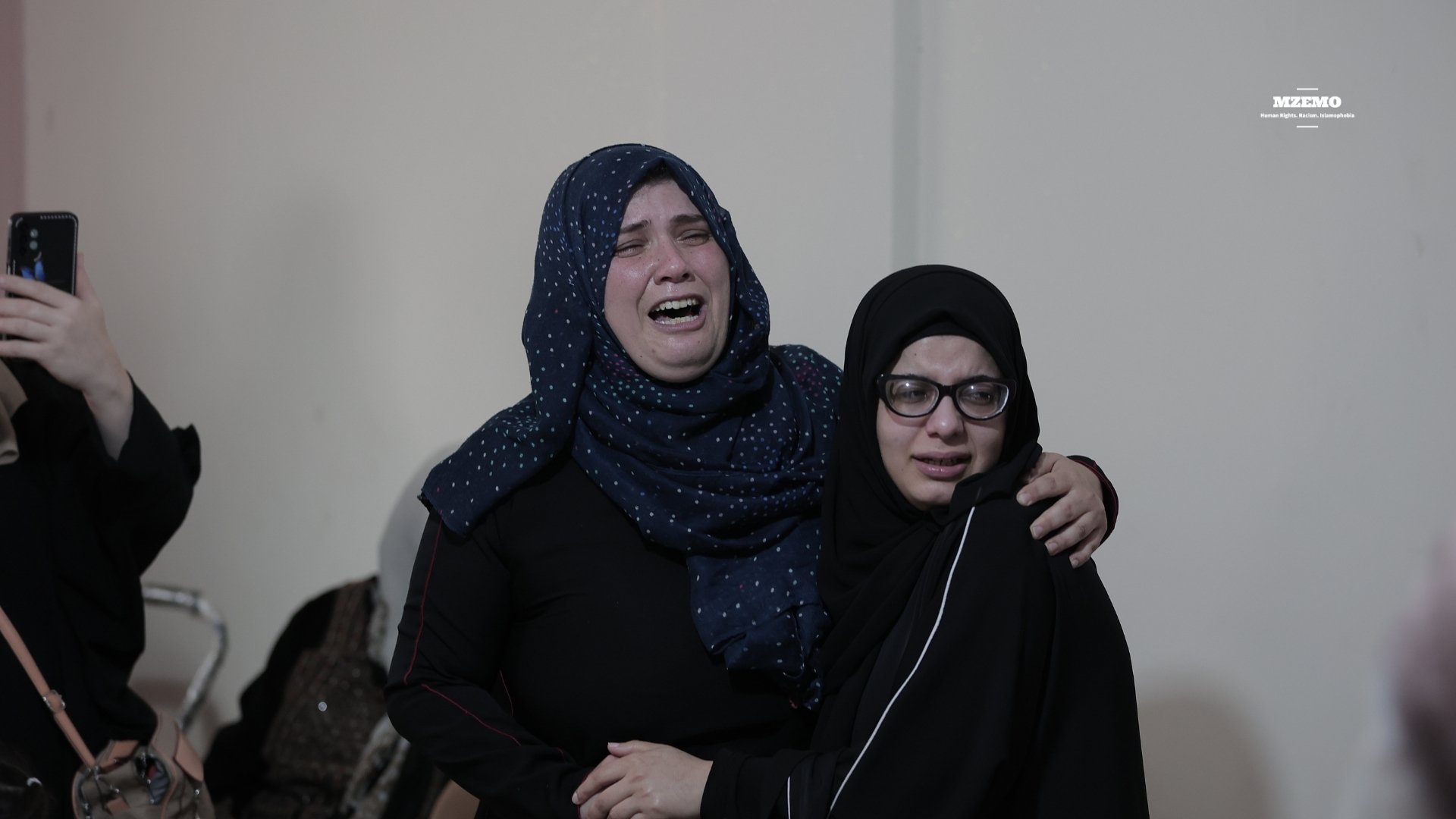
When a fragile truce was declared a few days ago, a brief wave of hope washed over Gaza. Families thought they might finally rebuild their shattered homes, search for missing relatives, and sleep without the thunder of jets. However, within days, Israeli warplanes were once again striking the besieged strip. The so-called ceasefire, brokered with international backing, proved to be another chapter in a series of broken promises and shattered faith.
Israel claimed its latest strikes were a “response” to alleged violations by Hamas. Yet, on the ground, the victims were overwhelmingly civilians. Gaza’s health authorities confirmed more than a hundred people killed in the first hours of renewed bombardment. Most of them are women and children. Hospitals, already operating on the brink of collapse, struggled to treat the flood of casualties amid power shortages and dwindling medical supplies.
The truce, meant to bring calm, instead became a cruel illusion. The hum of drones returned, the fear crept back, and families once again fled for survival through rubble-strewn streets. International media outlets described scenes of panic as people searched for shelter, knowing there was none.
Bombardment Under a Banner of Peace
Each new airstrike tears away the thin veil of diplomacy that labels this as a truce. Residential blocks in Khan Younis and Gaza City were flattened, as eyewitnesses described entire families buried under rubble. Aid convoys waiting at Rafah were delayed yet again, leaving tens of thousands of displaced families without food or shelter. Even temporary medical camps reported running out of anesthesia and blood supplies as wounded civilians poured in.
For many Gazans, this ceasefire was never about peace. It was a pause for breath, which means the one that Israel chose to weaponize. As one humanitarian worker told, “Every time they say peace, we prepare for more funerals.” The despair among civilians is palpable, as they question whether the world even listens anymore.
This renewed round of bombings underlines a haunting reality that every so-called truce has become another opportunity for Israel to reposition militarily while Gaza’s people pay with their lives.
Truce Without Trust: The Myth of Protection
The fragility of the ceasefire exposes an uncomfortable truth that there is no enforcement mechanism strong enough to hold Israel accountable. Western governments condemned the bombing with soft statements but continued supplying military aid. The United States, which once called for restraint, quietly approved another arms shipment days before the strikes resumed.
This moral contradiction fuels Gaza’s anguish. Washington preaches human rights yet funds the very machinery that violates them. The European Union speaks of international law but rarely acts when those laws are broken. For ordinary Palestinians, the message is clear that their lives are negotiable, their suffering expendable in geopolitical bargains.
Human rights analysts argue that without credible monitoring, ceasefires will remain political performances rather than pathways to peace. As one UN official said, “If a truce allows bombing to continue, it is not a truce but just a theater.”
The Humanitarian Fallout: Life Amid Rubble
The humanitarian picture is grim. The United Nations estimates over 1.7 million Gazans are internally displaced, living in makeshift tents, classrooms, or under broken walls. Clean water remains scarce, fuel is nearly exhausted, and disease spreads faster than aid. Children draw pictures of bombs instead of butterflies while mothers ration bread to feed hungry infants.
Entire neighborhoods lie in ruins while their residents wait for food deliveries that rarely arrive. The World Food Programme reports that over 90% of Gaza’s population faces acute food insecurity. Hospitals are short on insulin, cancer medicine, and even basic painkillers. In some areas, people boil seawater to drink. Aid agencies have warned that if the siege continues, famine could arrive before winter.
Yet trucks full of aid remain parked just across the border, which is a cruel reminder of political paralysis and global indifference.
Legal and Moral Accountability
Under international law, targeting civilians during a ceasefire violates the Geneva Conventions. Still, Israel acts with impunity, shielded by its Western allies. Human rights groups have repeatedly called for independent investigations, but efforts stall at the UN due to American vetoes. The International Criminal Court’s pending case on alleged war crimes in Gaza remains stalled by diplomatic pressure.
For the people of Gaza, these violations are not abstract. They are lived experiences with the sound of collapsing roofs, the dust in the lungs, the endless funerals of neighbors and friends. Each airstrike deepens a collective trauma that future generations will inherit.
International experts now warn that without accountability, the world risks normalizing war crimes. As Amnesty International stated, “A ceasefire without justice is a countdown to the next tragedy.”
What Lies Ahead
As diplomats gather to discuss the next phase of Gaza’s future, the ground reality remains unchanged. The truce is more fragile than ever, and the people it was meant to protect are once again paying the price. Unless the international community enforces accountability and demands a genuine end to hostilities, this cycle will repeat.
A ceasefire should mean safety, not survival between strikes. For Gaza’s people, peace cannot come from pauses in bombing, but it must come from the world’s moral awakening to their right to live, rebuild, and breathe free. The global community must decide whether it stands for human life or for silence in the face of genocide.
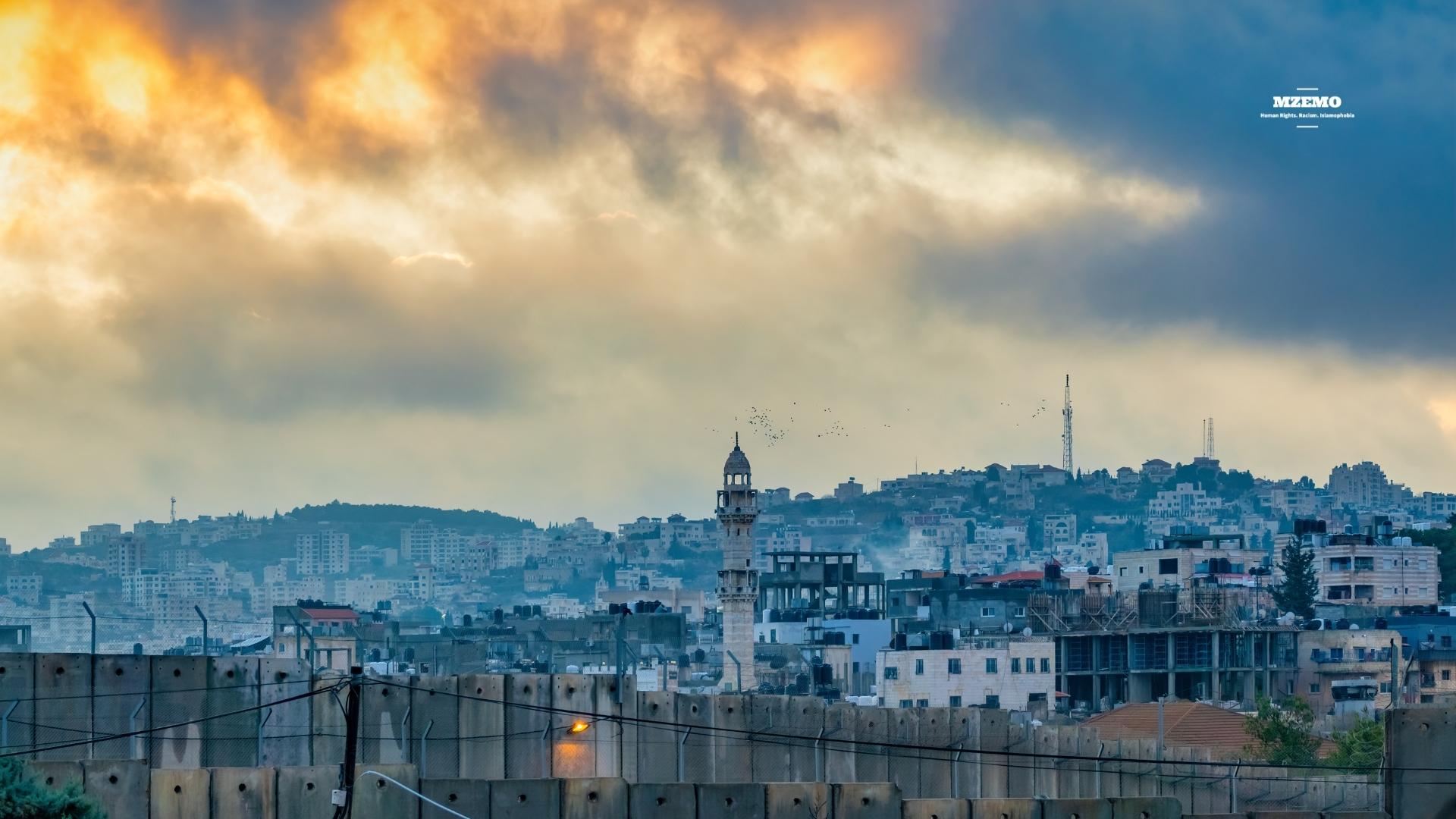
Gaza’s skyline has vanished under intense smoke, while its streets, once filled with life, now echo with silence and grief. Amid this devastation, Israel has chosen to open another front, and this time not with missiles, but with geography. The Knesset, Israel’s parliament, has recently advanced two bills that aim to formally annex large parts of the occupied West Bank. It is an act of political conquest, while on the other hand, Gaza’s children are buried under rubble.
This is not a coincidence but a continuity. As Gaza suffers from genocide, Israel is redrawing borders to make that erasure permanent.
A Legislative Land Grab
Recently, Israel’s parliament approved the first readings of two annexation bills. The first extends Israeli civil law to all West Bank settlements, which is a territory occupied since 1967 and recognized internationally as Palestinian land. When it comes to the second bill, it targets Ma’ale Adumim, a massive settlement east of Jerusalem that splits the West Bank in half, severing its north from its south.
Although the votes were close, with one passing 25–24 and the other 31–9, their meaning was profound. As per the reports, both bills were introduced while U.S. Vice President JD Vance was visiting Israel, symbolizing open defiance of Washington’s diplomacy. Prime Minister Benjamin Netanyahu hesitated to endorse them publicly, but pressure from his far-right allies, led by Bezalel Smotrich and Itamar Ben-Gvir, is relentless. Their ideology is clear: no Palestine, no partition, and hence no peace.
Gaza’s Agony: A Genocide in Real Time
While politicians in Jerusalem debate annexation, Gaza’s population fights to survive. The UN Commission of Inquiry has declared Israel’s actions in Gaza a genocide, which is a deliberate, systematic, and aimed effort at destroying a people. Till now, more than 67,000 Palestinians have died. Thousands have been displaced, and entire neighborhoods lie flattened. Hospitals function without power while aid convoys are bombed before reaching the hungry.
The International Court of Justice ordered Israel in January 2024 to prevent acts of genocide and ensure humanitarian access. None of those orders was respected. Moreover, the siege tightened, and starvation was made a weapon. Against this backdrop, annexation of the West Bank reads not as policy, but as a strategy that seems to be the second half of a single campaign to erase Palestine from existence.
Illegality Beyond Dispute
When International Law is brought into the limelight, Israel’s annexation efforts are null and void. Even the ICJ’s 2024 advisory opinion confirmed that Israel’s occupation and settlement expansion violate the Fourth Geneva Convention. The United Nations has repeatedly reaffirmed that any attempt to acquire land by force is illegal. States are required not to recognize or assist such measures.
Yet, Israel continues to act with impunity. Roads, checkpoints, and segregated zones have already turned the West Bank into an archipelago of isolated enclaves. The annexation of Ma’ale Adumim would cement that reality, rendering a future Palestinian state geographically impossible. As it was observed,
“Israel no longer hides its intent, and the map of occupation is clearly being turned into a map of sovereignty.”
Washington’s response has been familiar: sharp words, soft hands. Vice President Vance called the Knesset vote an “insult,” with a warning that it endangered the fragile Gaza ceasefire framework. Yet, U.S. military aid, which is nearly $3.8 billion annually, continues without condition. American arms still supply Israeli jets, and U.S. vetoes still block UN resolutions calling for accountability.
This pattern of contradiction has defined U.S.-Israel relations for decades, including public condemnation and private protection. Israel acts knowing that Washington’s rebukes will never reach the language of sanctions. It is diplomacy without deterrence, and therefore, carte blanche.
The Ceasefire Framework
As Gaza starves, diplomats continue to negotiate the truce. According to reports, the ceasefire plan includes a phased release of Israeli hostages, the freeing of about 2,000 Palestinian prisoners, and gradual Israeli troop withdrawals from urban centers. However, each new bulldozer digging into West Bank soil makes these efforts meaningless.
How can peace talks survive when one side expands the very occupation at their root? How can trust grow when homes are demolished under the shadow of negotiation tents? Consequently, the annexation vote mocks every word written in ceasefire communiqués.
What Lies Ahead
Inside Israel, Netanyahu faces a dangerous balancing act. His far-right allies threaten to topple his coalition if he slows annexation. Western allies warn of isolation if he proceeds. The prime minister’s hesitation is tactical, not moral. Whether annexation happens now or later, the machinery of occupation keeps grinding forward.
Internationally, legal pressure is rising but somehow easing, especially after the announcement of the so-called “truce”. The UN Human Rights Council urges accountability, while the European governments debate sanctions against settlers and arms-export suspensions. However, power still shields Israel from the consequences of law. The ICJ’s rulings carry moral weight, yet enforcement remains elusive. Until action matches outrage, international law will remain a promise unfulfilled.
Annexation during genocide is the moment when the world’s excuses run out. Law, morality, and history converge here. If the international community turns away again, the phrase “never again” will lose its meaning forever. And in the dust of Gaza and the stones of the West Bank, humanity itself will stand accused.
Trending
-

 Featured2 years ago
Featured2 years agoWorld passively watching as Israel perpetrates open-ended massacre in Gaza
-

 Featured3 years ago
Featured3 years agoArgentina wins the World Cup; are there any other winners?
-

 Featured2 years ago
Featured2 years agoIsrael is Hiding Crucial Demographic Facts About Palestinians
-

 Featured4 years ago
Featured4 years agoHistory of the Ottoman Empire
-

 Featured3 years ago
Featured3 years agoChristian militia infiltrate Lebanon
-

 Featured5 years ago
Featured5 years ago“Do Not Waste Water Even If You Were at a Running Stream” Prophet Muhammad
-

 Featured2 years ago
Featured2 years agoMuhammed: The Greatest Man to walk on Earth
-

 Featured3 years ago
Featured3 years agoWorld Leaders Remain Silent Over Human Rights Violations in the UAE














